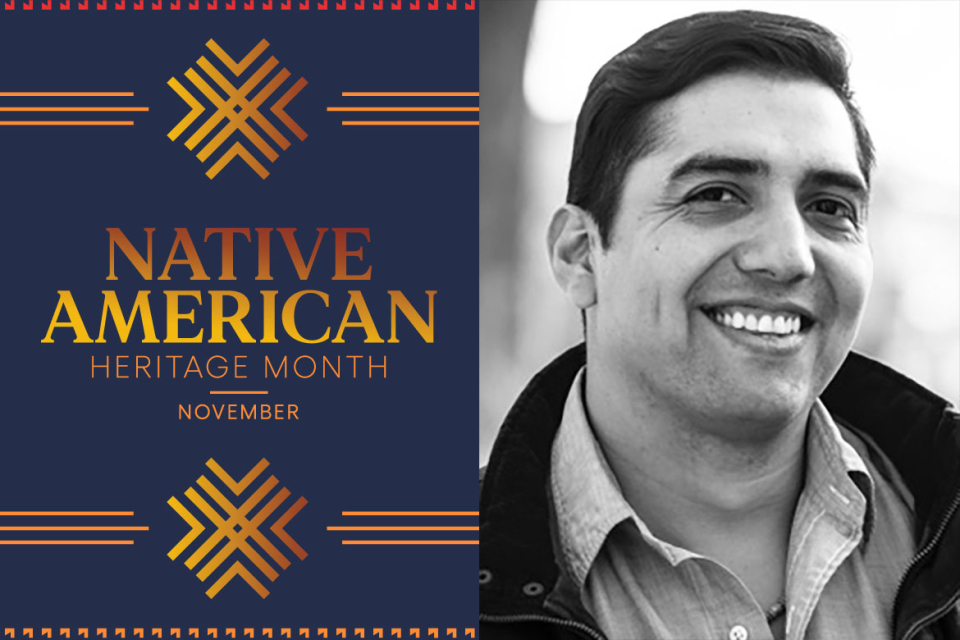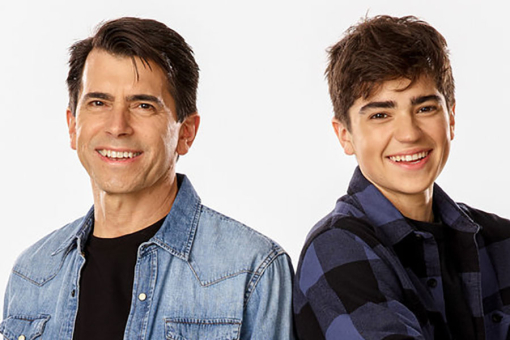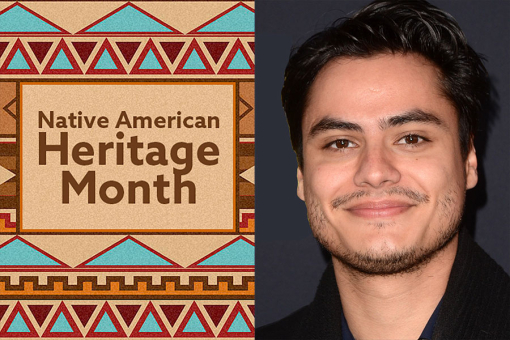He may not have fully realized it at the time, but reading Sherman Alexie's collection of short stories The Toughest Indian in the World was a life-changing experience for Anthony Florez (Pyramid Lake Paiute (Numu)/Washoe).
It happened while he was in prep school for the US Naval Academy, from which he later graduated. It was the first time Florez had read Native American literature – and it changed his course of study from chemistry and engineering to creative writing.
Growing up in Reno, Nevada close to the Pyramid Lake Paiute Reservation of which his father was a tribal member, any dreams of working in the arts, much less in Hollywood, were not in the arena of what he felt he could pursue.
His father, his two uncles and his grandfather had all served in various branches of the US military and that seemed to be Florez' path as well, especially since he had enjoyed his time in ROTC during high school. Plus, the military provided a high-quality education that his family might not have been able to afford.
"Alexie's story itself didn't connect with me 100%, but someone writing about the reservation intrigued me," Florez says in a phone call from Nevada, where he was preparing to direct a short film. "I looked him up, and saw he had written Smoke Signals, based on his book Tonto and Lone Ranger's Fistfight in Heaven. In terms of inspiring me as a writer, it had an impact. I gobbled up all of Sherman Alexie's work."
In an English class, he got an A for writing a short story about his first experience in a sweat lodge, using Alexie's writing style as a guide.
"The teacher recognized what I brought to the table as an artist. It was an engineering school, and I was very right and left-brained," Florez recalls. "Because of that, I waited four years to take the only creative writing class they offered."
Florez says fate intervened when, after college, he got a job at the Navy Office of Information West in Los Angeles, also referred to as NAVINFO West. It is the liaison between productions of scripted, documentary and unscripted projects that involve the US Navy and the Department of Defense, which makes sure depictions of the U.S. Navy are accurate.
In short order he became the tech advisor and project manager on TNT's The Last Ship, for which he read outlines, scripts and gave notes, including writing specific dialogue.
In 2018, Florez moved on to a mentorship program within the Writers Guild Foundation's Veterans Writing Project, during which he wrote a pilot. Later that year, he got into the Fox Writers Lab, a four-month immersive program that only accepts eight candidates out of 750 applicants. He soon found himself staffed on the Fox noir Western crime drama Deputy.
"[Showrunner] Will Beall basically hired me on the phone - without knowing I'd been part of a diversity program," Florez says. "I had been hired, and my first experience had nothing to do with being Native. I was someone whose life experiences matched what they needed. It's where inequality came through in a genuine way.
"Yes, I come from a Native background and brought that in and wanted to amplify it. Because of the roads I've walked, I've been treated as a pure equal person and hired as such. Ultimately [although the show was canceled] it was a great experience."
In April of this year, as a recently minted Guild member, Florez was elected co-chair (with Tazbah Rose Chavez) of the WGAw's Native American and Indigenous Writers Committee, which had been established in 2007.
Last month, about 30 members of NAIWC signed a scathing letter to the Hollywood creative community requesting real and renewed efforts of inclusion in front of and especially behind the camera in the ranks of executives, writers, producers and directors – as well as in all other departments.
The letter points out the disgraceful fact that in the entire, massive television universe currently, there are only two Native American showrunners, Sierra Teller Ornelas (Rutherford Falls) and Sterlin Harjo (Reservation Dogs), both of whom signed the missive.
"We call on our colleagues to move beyond the limiting practice of only hiring us as cultural consultants," the letter read. "We are not in the business of legitimizing scripts for free, or authorizing our stories for others to tell. We have seen this for more than a century, and it has only perpetuated racism toward our community by way of erasure and harmful stereotypes."
Yet Florez says that Native and Indigenous talent should be allowed to fail just like anyone else.
"Smaller communities get held to a higher and weird double standard," he says. "Every year tons of money is spent on TV pilots, but how many feature Native characters or storylines? You don't know if we don't get the opportunity. If we can be allowed to fail upward, the best will rise to the top, but how can we if we don't have same chance to rise?"
Read more on Native American inclusion in the television industry.











